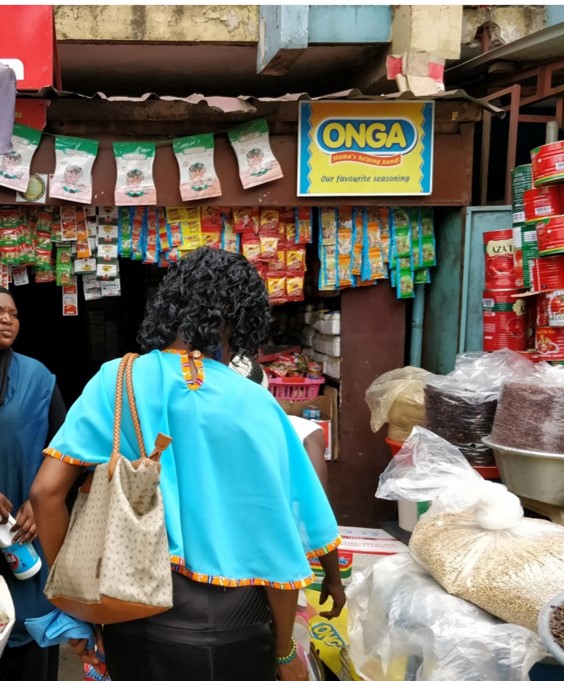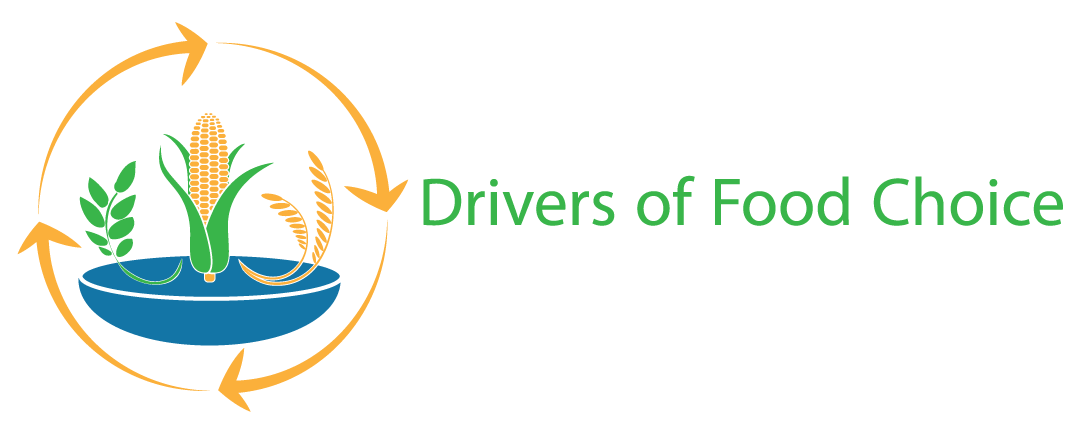Dietary Transitions in Ghanian Cities: Mapping the Factors in the Social and Physical Food Environments that Drive Consumption of Energy Dense Nutrient-Poor (EDNP) Food and Beverages to Identify Interventions Targeting Women and Adolescent Girls Throughout the Reproductive Life Course

Abstract
Project objectives:
To examine factors in social and physical food environments of African cities that drive consumption of EDNP foods and beverages, and harness this understanding to develop interventions to reduce their consumption.
Design:
Setting: Two Ghanaian cities of different stages of transition: provincial city (Ho- population>270,000); capital city (Accra- population>1.8 million).
Study population: Women/adolescent girls living in lower wealth quintile neighborhoods at four key stages of the reproductive life course: i. Early adolescence (13-14y) not pregnant or breastfeeding; ii. Pregnancy (15-49y); iii. Breastfeeding (15-49y); and iv. Women/older adolescents not breastfeeding or pregnant (15-49y). Community informants and national stakeholders will also be interviewed.
Proposed methods: A combination of qualitative and quantitative methods to examine factors in the social and physical food environments that drive consumption of EDNP foods and beverages: longitudinal qualitative interviews with women/adolescent girls including 24hr recall and Photovoice; Geographic Information System (GIS) mapping; and a photography exhibition. We will integrate these findings into developing priorities for context-specific gender interventions to reduce consumption of EDNP foods of women and adolescent girls to reduce the gender gap: Community Readiness Model (CRM), policy documentary analysis, Multi-Criteria Mapping (MCM) and stakeholder deliberation with local community informants and national stakeholders. Widespread dissemination will include webinars in Ghana and beyond, to build momentum for future implementation of interventions.
Lead Institution
- IRD: French National Research Institute for Sustainable Development
Collaborating Institutions
- Department of Population, Family and Reproductive Health, University of Ghana, Accra, Ghana
- Department of Family and Community Medicine, University of Health and Allied Sciences, Ghana
- Centre for Global Health and Human Development, Loughborough University
- The French Agricultural Research & International Cooperative Organization (CIRAD)
- Department of Geography and Planning, University of Liverpool, UK
Principal Investigator(s)
- Michelle Holdsworth, RD, RNutr, PhD, Senior Researcher, Joint Research Unit on Food & Nutrition Research in the Global South, IRD: French National Research Institute for Sustainable Development,
- Amos Laar, MPH, MA, PhD, Senior Lecturer, School of Public Health, University of Ghana, Accra, Ghana
- Francis Zotor, PhD, Professor, University of Health and Allied Sciences, Ghana
Co-Investigator(s)
- Robert Akparibo, MPH, PhD, RNutr, Lecturer, University of Sheffield, UK
- Paula Griffiths, PhD, Professor, Loughborough University
- Mark Green, PhD, Senior Lecturer, University of Liverpool, UK
- Nicolas Bricas, MSc, Senior Researcher & UNESCO Chair of World Food Systems, CIRAD-Agricultural Research & International Cooperative Organization
- Kobby Mensah, PhD, Lecturer, University of Ghana Business School
Journal Publications
- Wanjohi MN, Pradeilles R, Asiki G, Holdsworth M, Kimani-Murage EW, Muthuri SK, Irache A, Laar A, Zotor F, Tandoh A, et al. Community perceptions on the factors in the social food environment that influence dietary behaviour in cities of Kenya and Ghana: A Photovoice study. Public Health Nutrition. 2022:1-31. doi:10.1017/S1368980022002270
- Liguori J, Pradeilles R, Laar A, Zotor F, Tandoh A, Klomegah S, Osei-Kwasi HA, Le Port A, Bricas N, Aryeetey R, Akparibo R, Griffiths P, Holdsworth M. (2022). Individual-level drivers of dietary behaviour in adolescents and women through the reproductive life course in urban Ghana: A Photovoice study. Maternal & Child Nutrition, e13412. https://doi.org/10.1111/mcn.13412
- Pradeilles R, Irache A, Holdsworth M, Laar A, et. al. (2021). “Urban physical food environments drive dietary behaviours in Ghana and Kenya: A photovoice study.” Health & Place, 71, 102647.
- Holdsworth M, Pradeilles R, Tandoh A, Green M, Wanjohi M, Zotor F, Asiki G, Klomegah S, Abdul-Haq Z, Osei-Kwasi H, Akparibo R, Bricas N, Griffiths P, Laar A. (2020). “Unhealthy eating practices of city-dwelling Africans in deprived neighbourhoods: evidence for policy action from Ghana and Kenya.” Global Food Security Journal, 26, 100452.
- Laar A, Barnes A, Aryeetey R, Tandoh A, Bash K, Mensah K, Zotor F, Vandevijvere S, Holdsworth M. (2020). “Implementation of healthy food environment policies to prevent nutrition-related non-communicable diseases in Ghana: National experts’ assessment of government action.” Food Policy. 101907. doi:10.1016/j.foodpol.2020.101907.
- Green M, Pradeilles R, Laar A, Osei-Kwasi H, Bricas N, Coleman N, Klomegah S, Njeri M, Tandoh A, Akparibo R, Griffiths P, Kimani E, Mensah K, Muthari S, Zotor F, Holdsworth, M (2020). “Characterising the food and advertising environments of deprived neighborhoods in African cities.” BMJ Open. doi: 10.1136/bmjopen-2019-035680.
- Pradeilles R, Marr C, Laar A, Holdsworth M, Zotor F, Tandoh A, Klomegah S, Coleman N, Bash K, Green M, et al.(2019). “How ready are communities to implement actions to improve diets of adolescent girls and women in urban Ghana?” BMC Public Health. 19:1–14. (doi: 1186/s12889-019-6989-5)
Posters & Presentations
- “Understanding drivers of food choice in changing food environments of low- and middle-income countries to inform program and policy” By Blake CE, Constantinides S, Turner C, Warren A, Ambikapathi R, Holdsworth M, Laar A, Sellen D, Frongillo E. 5th Agriculture, Nutrition & Health (ANH) Academy Week Learning Lab, June 24, 2020.
- “Unhealthy food and beverage practices in everyday life in Ghanaian cities” By Tandoh A, Holdsworth M, Pradeilles R, Zotor F, Green M, Klomegah S, Osei-Kwasi H, Bricas N, Griffiths P, Laar A. 5th Agriculture, Nutrition & Health (ANH) Academy Week, June 30 – July 2, 2020. ([pdf])
- “How unhealthy food and beverages are embedded in everyday life in Ghanaian cities.” By Holdsworth M, Pradeilles R, Zotor F, Green G, Tandoh A, Klomegah S, Osei-Kwasi H, Bricas N, Griffiths P, Laar A. Sixth BSA Food Study Group Conference: Re-Imagining Food Systems, Sustainability, Futures and the Everyday at Monash University, Prato, Italy, 24-25 June 2019.
- “Implementation of Healthy Food Environment Policies in Ghana: Gaps and Priorities to Prevent Nutrition-Related NCDs” By Laar, A. 4th Agriculture, Nutrition & Health (ANH) Academy Week, Hyderabad, India, 24–28 June 2019.
- “Dietary transitions in Ghanaian cities: using innovative methods to map the social and physical food environments that drive consumption of unhealthy foods and beverages, to identify contextually appropriate policies and interventions: the DFC Dietary transitions in Ghana study.” By Holdsworth M, Zotor F, Pradeilles R, Griffiths P, Green M, Mensah K, Akparibo R, Barnes A, Bricas N, Laar A. 3rd Agriculture, Nutrition & Health (ANH) Academy Week, Accra, Ghana, 25-29 June 2018.
- “Dietary transitions in Ghanaian cities.” By Laar, A. 3rd Agriculture, Nutrition & Health (ANH) Academy Week, Accra, Ghana. 25-29 June 2018.
- “Social and physical drivers of food choice: a participatory Photovoice project in two Ghanaian cities: a DFC Dietary transitions in Ghana study.” By Pradeilles R, Laar A, Zotor F, Tandoh A, Klomegah S, Osei-Kwasi H, Bohr M, Green M, Bricas N, Holdsworth M, Griffiths P. 3rd Agriculture, Nutrition & Health (ANH) Academy Week, Accra, Ghana, 25-29 June 2018.
- “Dietary transitions in African cities.” By Osei-Kwasi HA, Laar A, Pradeilles R, Zotor F, Aryeetey R, Akparibo R, Tandoh A, Klomegah S, Green M, Bricas N, Griffiths P, Njera M, Holdsworth M. N8 Agri-food annual conference, Liverpool, May 2018.
Briefs
Research Brief
- Holdsworth M, Laar A, Zotor F, Akparibo R, Griffiths P, Bricas N, Mensah K, Pradeilles R, Tandoh A, Osei-Kwasi HA, Klomegah S. (2020). “Dietary Transitions in Ghanaian Cities.”
Policy Briefs
- Laar, A., Tandoh, A., Barnes, A., Bash, K., Aryeetey, R., Mensah, K., Vandevijvere, S., Holdsworth, M. (2019). Benchmarking Ghana’s policies for creating healthy food environments: Ghana Healthy Food Environment Policy Index (Food-EPI) country scorecards and priority recommendations for action.
- Laar, A., Tandoh, A., Barnes, A., Bash, K., Aryeetey, R., Mensah, K., Vandevijvere, S., Holdsworth, M. (2019). Dietary transitions in Ghanaian cities: Leveraging evidence for policy and intervention to prevent diet-related non-communicable diseases.
Other
Open Access Data
Webinar Presentations
- “Perspectives on Food safety as a driver of food choice in LMIC” By Shilpa Constantinides, Michelle Holdsworth, Amos Laar, Jessica Raneri, Crystal Patil, & Germana Leyna.
- Urban Food Policy Forum | “Ultra-Processed Foods: Their Role in Dietary Health and Disease” with Dr. Amos Laar on 16-JUL-2020. Virtual event sponsored by CUNY Urban Food Policy Institute.
- Holdsworth, M., Pradeilles, R., Njeri, M., Zotor, F; Laar, A. “Dietary Transitions in African Cities.” 9, May 2019.
Press Releases
- A press release was issued at the start of the project (January 2017) by the University of Sheffield, UK and University of Ghana: Dietary Transitions in Ghanaian Cities Project Launched
- Press releases were issued by the University of Ghana and Loughborough University, UK in June 2018 for the Photovoice exhibition launches held at Jamestown, Accra and Ho municipal centre, Ho. Identifying the changes in diet which could prevent obesity and diabetes
- Using photography to help the people of Ghana make healthier diet choices
- Photo exhibitions in Ghana reveal what drives community food choices
Blogs
- DFC blog from Hibbah Araba osei-kwasi (Research Assistant): Observations from the field: Dietary transitions in Ghanian cities
- DFC blog from Krystal Rampalli, Rebecca Pradeilles, and Akua Tandoh: Food safety is an important factor to consider in promoting healthy eating in urban Ghana
- Blog post from Graham, F & Klomegah, S. Dietary Transitions in Ghanaian cities: Preliminary findings. Published by Transform Nutrition West Africa, March 2019
Website
